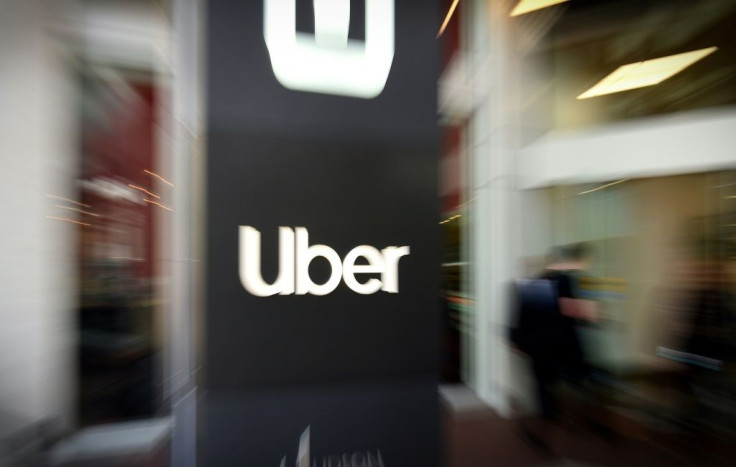No More Uber In London? City Denies License Over Safety Concerns, Rivals Hail Decision

Uber Technologies (UBER) lost its license to operate in London as Britain’s transport regulator said that the ride-hailing company failed to address rider safety issues adequately.
Transport for London said on Monday Uber’s app has a flaw that allowed some 14,000 unauthorized users pretend to be Uber drivers simply by uploading their photographs onto licensed accounts. Some of these fake drivers even had revoked licenses or were previously suspended or fired by the company.
While noting Uber has made “a number of positive changes and improvements to its culture, leadership and systems” since last summer, the regulator identified “a pattern of failures by the company including several breaches that placed passengers and their safety at risk.”
Helen Chapman, director of licensing, regulation and charging at Transport for London, said: "It is unacceptable that Uber has allowed passengers to get into minicabs with drivers who are potentially unlicensed and uninsured."
Uber said it will appeal the ruling, but will be allowed to operate in London while a court examines the decision.
Uber first lost its London license in 2017 but received two extensions, the last of which expired on Sunday.
Uber has about 45,000 licensed drivers in London, which is one of Uber’s top five global markets, along with Los Angeles, New York City, San Francisco and São Paulo.
Jamie Heywood, Uber’s regional general manager, called the decision “extraordinary and wrong.”
“We have fundamentally changed our business over the last two years and are setting the standard on safety,” Heywood added.
Dara Khosrowshahi, Uber’s CEO tweeted: “We understand we’re held to a high bar, as we should be. But this [Transport for London] decision is just wrong. Over the last [two] years we have fundamentally changed how we operate in London. We have come very far -- and we will keep going, for the millions of drivers and riders who rely on us.”
We understand we’re held to a high bar, as we should be. But this TfL decision is just wrong. Over the last 2 years we have fundamentally changed how we operate in London. We have come very far — and we will keep going, for the millions of drivers and riders who rely on us.
— dara khosrowshahi (@dkhos) November 25, 2019
In a public filing, Uber said: "Any inability to operate in London, as well as the publicity concerning any such termination or non-renewal, would adversely affect our business, revenue, and operating results.”
Uber responded to the regulator’s safety concerns by stating that "over the last two months we have audited every driver in London and further strengthened our processes. We have robust systems and checks in place to confirm the identity of drivers and will soon be introducing a new facial matching process, which we believe is a first in London taxi and private hire."
CBI, a British business lobby group, urged the courts to grant Uber a new license.
"We'd encourage both sides to continue the dialogue to determine what changes are required in order that Uber's customers can continue to enjoy the service in the long term," CBI chief UK policy director Matthew Fell said.
Unions also criticized the ruling, but did not spare Uber either.
James Farrar, chairman of the united private hire drivers branch of the Independent Workers Union of Great Britain, said many drivers “will now face the distress of facing not only unemployment but also crippling debt as they struggle to meet car lease payments. The terrible price of Transport for London’s inability to run a stable regulatory regime and Uber’s refusal to play by the rules will be paid for by the most vulnerable workforce in London.”
Unite union, which contends that Uber has taken business away from London’s iconic black cabs, said: "Uber's DNA is about driving down standards and creating a race to the bottom which is not in the best interests of professional drivers or customers.”
Steve McNamara, the general secretary of the Licensed Taxi Drivers Association, which represents London black-cab drivers, welcomed the decision.
“As far as we’re concerned Uber’s business model is essentially unregulatable,” he said. “It is based on everyone doing what they want and flooding London with vehicles. Uber cannot guarantee that the cars are properly insured, or that the person driving the car is the one that is supposed to be driving, as recent incidents show.”
Mandeep Singh, senior analyst at Bloomberg Intelligence, warned the decision may hurt Uber’s profitability outlook in 2021. “London is a more mature ride-sharing market, with the potential to drive positive [earnings before interest, taxes, depreciation, and amortization] margin,” she wrote.
London Mayor Sadiq Khan said: "I know this decision may be unpopular with Uber users, but their safety is the paramount concern. Regulations are there to keep Londoners safe."
And what if Uber is actually finished in London?
Fiona Cincotta, market analyst at City Index, told BBC that should Uber disappear from London streets, "there would be competition that would fill that void quite quickly."
© Copyright IBTimes 2025. All rights reserved.





















